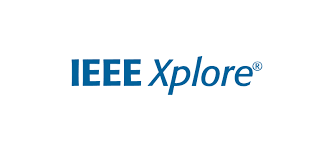ICADIES 2025
(February 3-4,
2025)
Bandung, Indonesia
IEEE Xplore ProceedingThe 2026 International Conference on Advancement in Data Science, E-learning and Information System (ICADEIS) is a premier event dedicated to advancing the fields of data science and information systems. Scheduled to take place from 23 – 24 June 2026, in Bandung, Indonesia, with a hybrid platform allowing for both in-person and virtual participation, ICADEIS 2026 aims to bring together leading educators, researchers, policymakers, and industry practitioners from around the world.
ICADEIS was first established in 2019, driven by the need to explore and address the evolving challenges at the intersection of data science and information systems. Over the past decade, the conference has grown significantly in scope and impact, becoming a key platform for sharing innovative research and fostering collaboration among global experts.
In its early years, ICADEIS focused on foundational topics in data science and information systems. As the fields have advanced, the conference has expanded to cover emerging trends and technologies, reflecting the rapid evolution of the industry. Notable past editions have featured groundbreaking research, influential keynote speakers, and numerous networking opportunities, contributing to significant advancements in the field.
Each year, ICADEIS attracts a diverse audience of researchers, practitioners, and policymakers, all committed to exploring the latest developments and applications in data science and information systems. The conference continues to build on its legacy of excellence, providing a vital forum for discussion, innovation, and collaboration.
Join us at ICADEIS 2026 to explore the latest advancements, network with peers, and contribute to the future of data science and information systems. Together, we can drive innovation and sustainability through interdisciplinary collaboration.
This section provides information about past editions of our international conference, with links to proceedings officially published in the IEEE Xplore Digital Library.
